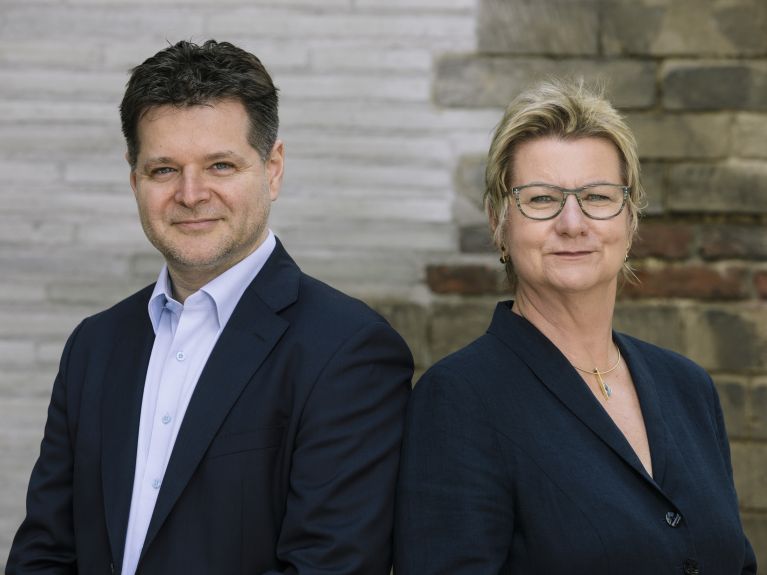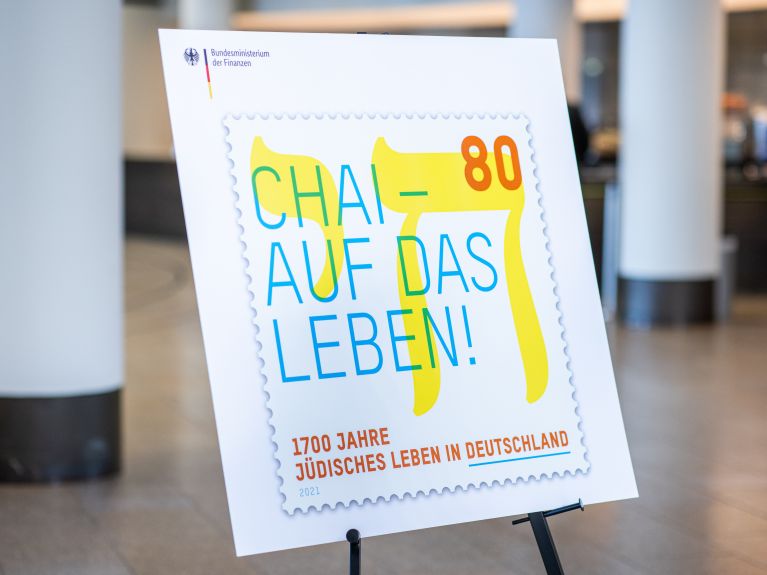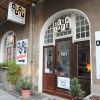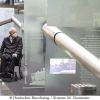Celebrating the past, shaping the future
#2021JLID: This year we are celebrating 1,700 years of Jewish life in Germany – read here what you can expect from this anniversary year.

To make Jewish life visible and allow it to be experienced, to combat the rise in anti-Semitism and to stand shoulder to shoulder – despite the coronavirus pandemic. These are the objectives of the anniversary celebrations for #2021JLID – Jewish life in Germany. All over Germany, around a thousand (mainly digital) events will be taking place, including concerts, exhibitions, music, a podcast, video projects, theatre, films. The ceremony that will take place on 21 February at Cologne Synagogue will mark the nationwide start to a special year under the auspices of Federal President Frank-Walter Steinmeier.
In our double interview, Sylvia Löhrmann, secretary-general of the association “1,700 years of Jewish life in Germany” and former deputy state premier of North Rhine-Westphalia, and Andrei Kovacs, director of the association “1,700 years of Jewish life in Germany” and the grandson of Holocaust survivors, will explain exactly what will be celebrating during this special year, and how we can fight anti-Semitism in general.
Mr Kovacs, what exactly will we be celebrating when we celebrate 1,700 years of Jewish life in Germany?
Andrei Kovacs: We are celebrating 1,700 years of Jewish life in Germany because we have an opportunity once again to allow Jewish life to thrive in a pluralist society. Roughly 150,000 Jewish people live in Germany, around 100,000 of whom are officially registered in the Jewish communities. This is not something that can be taken for granted 76 years after the Holocaust. We can showcase Jewish life once more, and allow people to experience it. This is reason enough to celebrate this special year. The anniversary year is a chance for us to embrace our similarities and our differences. We are loud, we are colourful, and sometimes we are tiring, but we want to be a normal part of this society.
Is it possible to review 1,700 years of Jewish-German history without talking about 1,700 years of anti-Semitism?
Kovacs: Anti-Semitism is probably one of the oldest and constantly mutating viruses in the history of humankind. Sadly we are also talking about 1,700 years of anti-Judaism and anti-Semitism. As well as times of persecution and murder, however, there have been periods of emancipation and integration. There have been times when Jewish life in Germany has blossomed. Take for example the ShUM cities, an example of Jewish emancipation in the twelfth century. In the Middle Ages, Jews called the three largest and most influential Jewish communities in the German world ShUM cities, namely Mainz, Worms und Speyer. Let us also recall Rashi, one of the most important rabbis of the Middle Ages, who came to Worms and Mainz to study. These symbolise times when Jews were able to take part in life in Germany.
Löhrmann: Those of us who established the association thought for a long time about what name to give the year of celebrations. We consciously decided against a year of commemoration. There are plenty of occasions for commemoration, and they all have their justification. The Holocaust is in Germany’s DNA, as former Federal President Joachim Gauck put it. It will not be an anniversary year of only peaches and cream, but a year that pays proper tribute to our 1,700 years of shared history. It is supposed to show how Judaism is a constitutive element of German history.
Education and personal encounters are the most effective means of combating prejudice and racism
How easy will it be to showcase Jewish life this year during the coronavirus pandemic?
Kovacs: A particular feature of the coronavirus period are conspiracy theories. Which makes this a time of growing distrust. This makes it all the more important not to allow a virus to halt our activities. Jewish life has always been forced to adapt. We will adapt the format of the ceremony, but it will definitely take place. We have launched a podcast that explores Jewish life and includes many well-known personalities. The contributions break with the stereotypical Jew, and are intended to show that Jewish life exists in many forms, and that there are sometimes more Jewish opinions than Jewish people. We have a puppet theatre that will accompany and explain the Jewish festival days. The celebrations will not take place behind closed doors. They will be beautiful and upbeat, sad and varied celebrations that we want to explain in a way that everyone will understand – and some may even see parallels with their own festivals. We will remain flexible so that we can implement the programme despite all the challenges. Nothing will stop us.
Löhrmann: The anniversary year will be driven by a decentral approach and by civil society. We currently expect to see around 1,000 events. The Robert Koch Institute for example has researched the history of its Jewish employees post-1933 – and they truly have more than enough on their plate at the moment. Education and personal encounters are the most effective means of combating prejudice and racism. The fact that a large number of the events will take place online makes it easier for many people to participate from their own homes.
Kovacs: It is easier to get to know one’s neighbour by drinking a beer or glass of wine with him than by studying his CV and looking into his flat through a telescope. Personal encounters give rise to empathy – and this is the best way to combat anti-Semitist stereotypes of the kind that one in three people still have in their minds.
We can no longer change the past, but we can shape the future.
You mentioned the Holocaust. How can and must these twelve years be incorporated into a year that is devoted to 1,700 years of shared history?
Kovacs: We cannot say that we are talking about 1,688 years – and that there was of course also the Holocaust. It was the biggest crime in human history, and one that only ended 76 years ago. The distress that this still causes to the present day must be addressed. We can no longer change the past, but we can influence the present and we can shape the future. This is why we must consider together what relevance the Holocaust still has for society, today and in the future?
Löhrmann: “Never again” remains our goal. However, it is also important to show that Judaism is neither new nor alien. We will have a special postage stamp – which drew our attention to just how many postage stamps have already featured Jewish personalities. For example Else Lasker-Schüler, Albert Einstein, Karl Marx, Heinrich Heine and Rosa Luxemburg. Realising that they all belong to Germany makes it clearer what is important here: that non-Jews and Jews meet to talk about how we all want to shape the future of this country together.



